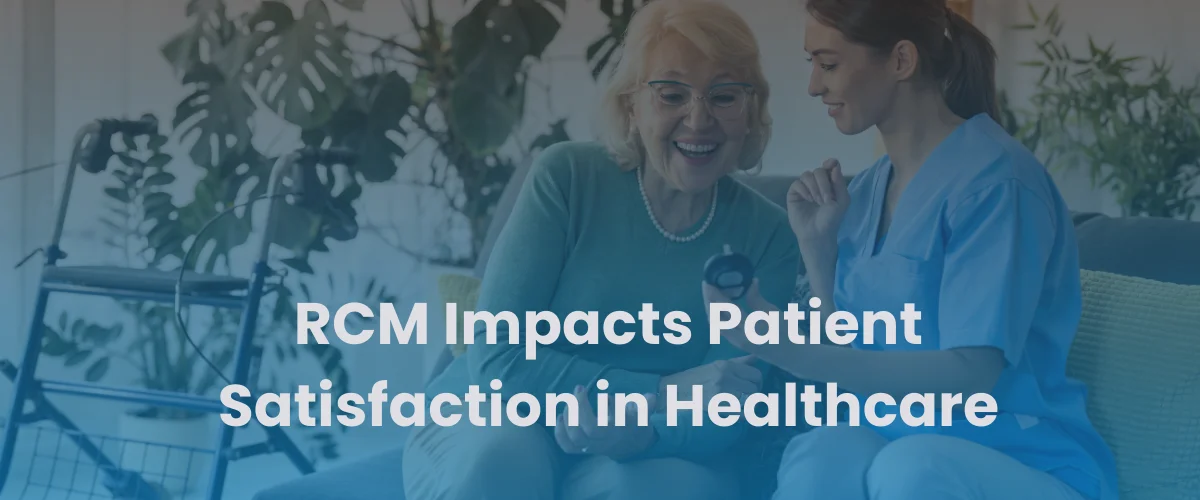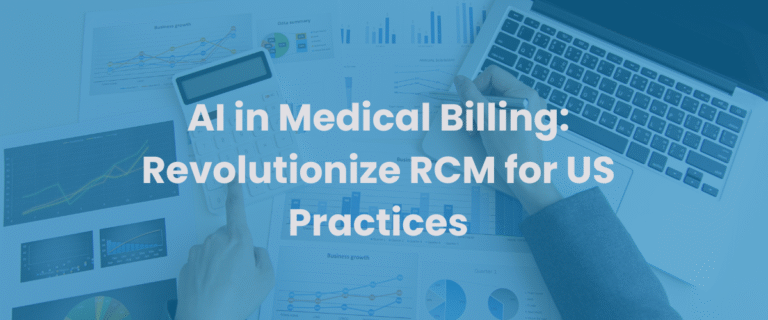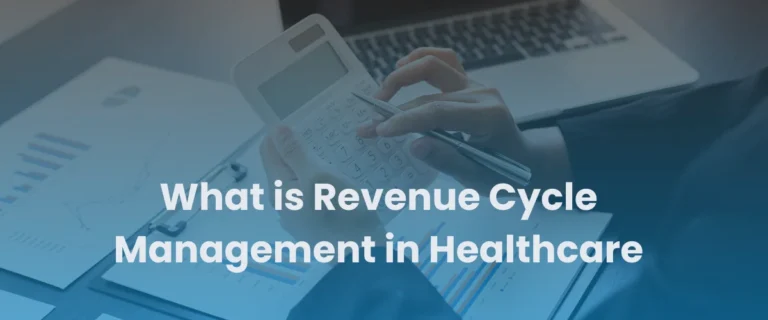Revenue Cycle Management (RCM) plays a pivotal role in the financial operations of healthcare organizations, ensuring the seamless flow of revenue from patients and insurance companies. However, its impact extends beyond financial processes to a critical area: patient satisfaction. In an increasingly patient-centered healthcare environment, the efficiency and effectiveness of revenue cycle management (RCM) directly influence how patients perceive the quality of their care.
Below, the details explore how an effective revenue cycle management (RCM) solution enhances patient satisfaction and improves the overall healthcare experience.
What Is Revenue Cycle Management (RCM)?
Revenue Cycle Management (RCM) encompasses the financial processes healthcare providers use to track patient care episodes, from initial appointment scheduling to final payment collection. A robust RCM solution integrates billing, claims processing, insurance verification, and patient payment management into a cohesive system, ensuring accuracy and efficiency at every step.
When RCM processes are optimized, patients benefit from clearer communication, faster resolutions, and less financial stress, all key contributors to higher satisfaction levels.
Key Areas Where RCM Impacts Patient Satisfaction
1. Transparent and Accurate Billing
Patients often cite billing issues as a major source of dissatisfaction in healthcare. Errors in medical bills, unclear itemizations, or unexpected costs can frustrate patients and erode trust. A comprehensive RCM solution minimizes these issues by ensuring:
- Accurate Billing through Automated Systems
- Clear and Detailed Explanations of Charges
- Upfront Cost Estimates, Enabling Patients to Plan their Finances Effectively
Transparency in billing fosters trust and reduces misunderstandings, leading to a more positive patient experience.
2. Streamlined Appointment Scheduling and Pre-Authorization
Delays and inefficiencies in appointment scheduling or insurance pre-authorizations can create significant inconvenience for patients. Advanced RCM solutions automate these processes, ensuring:
- Faster Appointment Confirmations.
- Seamless Verification of Insurance Coverage.
- Proactive Handling of Pre-authorization Requirements.
This reduces patient wait times and ensures they receive timely care without administrative hurdles, contributing to overall satisfaction.
3. Efficient Claims Processing and Reduced Denials
Denied insurance claims often place a financial and emotional burden on patients. A reliable revenue cycle management (RCM) solution improves claims accuracy and reduces denial rates by:
- Scrubbing Claims for Errors before Submission
- Tracking Claims in Real-time to Address Issues Promptly
- Providing Denial Management tools for Quick Resubmissions
When claims are processed efficiently, patients avoid the stress of unexpected financial liabilities and enjoy a smoother experience.
4. Enhanced Communication and Patient Engagement
Patients appreciate clear communication and accessible support when dealing with healthcare finances. RCM solutions enhance engagement through:
- Patient Portals: Allowing patients to view bills, track payments, and ask questions.
- Automated Reminders: Ensuring patients stay informed about upcoming payments or appointments.
- 24/7 Support: Providing immediate assistance for billing inquiries.
These tools empower patients to take control of their healthcare finances, improving their overall experience.
5. Flexible Payment Options
Healthcare costs can be a significant financial burden for patients. RCM solutions that offer flexible payment plans, online payment portals, and mobile payment options make it easier for patients to manage their medical bills.
This flexibility not only reduces financial stress but also demonstrates a commitment to patient well-being, fostering loyalty and satisfaction.
6. Shorter Wait Times for Financial Processes
Long wait times for insurance verification, billing inquiries, or payment processing can detract from the overall patient experience. An efficient RCM solution streamlines these processes, ensuring faster resolutions.
By minimizing delays, healthcare providers create a more seamless experience, allowing patients to focus on their health rather than administrative tasks.
The Role of RCM in Building Patient Trust
Patient trust is a cornerstone of healthcare satisfaction. Trust is built when patients feel that their healthcare provider is transparent, efficient, and genuinely cares about their well-being. RCM contributes to this trust by:
- Demonstrating financial transparency through clear billing practices.
- Resolving billing issues promptly and professionally.
- Reducing the likelihood of surprise medical bills.
Patients who trust their healthcare provider are more likely to return for future care and recommend the provider to others, making trust-building a critical focus area for healthcare organizations.
How Revenue Cycle Management (RCM) Solutions Address Common Pain Points
Challenge: Billing Errors and Confusion
- Solution: Automating billing processes and using patient-friendly language on statements.
Challenge: High Out-of-Pocket Costs
- Solution: Offering payment plans and leveraging government incentive programs, such as MIPS, to minimize patient costs.
Challenge: Lack of Communication
- Solution: Integrating patient engagement tools like chatbots, SMS notifications, and email updates.
Challenge: Delayed Insurance Approvals
- Solution: Using automated eligibility verification systems to expedite approvals.
Benefits of Patient-Centric RCM
A patient-focused Revenue Cycle Management Solution benefits both providers and patients in the following ways:
- Improved Patient Loyalty: Satisfied patients are more likely to return for future care and recommend the provider to others.
- Higher Collections: Clear and transparent billing increases the likelihood of timely payments.
- Reduced Administrative Burden: Automation frees staff to focus on patient care instead of administrative tasks.
- Enhanced Reputation: Providers known for hassle-free billing processes attract more patients.
The Future of RCM and Patient Satisfaction in AtMedBilling
AtMedBilling offers advanced technologies, such as Artificial Intelligence (AI) and Machine Learning (ML), that shaping the future of RCM. These innovations offer predictive analytics for patient payment behavior, real-time claim tracking, and chatbot-driven patient support.
Additionally, patient-centric features like mobile apps and personalized billing communications are becoming standard, further enhancing the patient experience.
Conclusion
Revenue Cycle Management (RCM) is more than a financial backbone for healthcare organizations; it’s a critical driver of patient satisfaction. By addressing common pain points such as billing errors, communication gaps, and financial stress, an effective RCM solution not only ensures operational efficiency but also enhances the patient experience.
In a competitive healthcare landscape, prioritizing patient satisfaction through robust RCM practices is essential for building trust, fostering loyalty, and ensuring long-term success. Healthcare providers that leverage innovative RCM solutions are better equipped to deliver a seamless, stress-free experience for their patients, creating a foundation for enduring relationships and sustainable growth.




